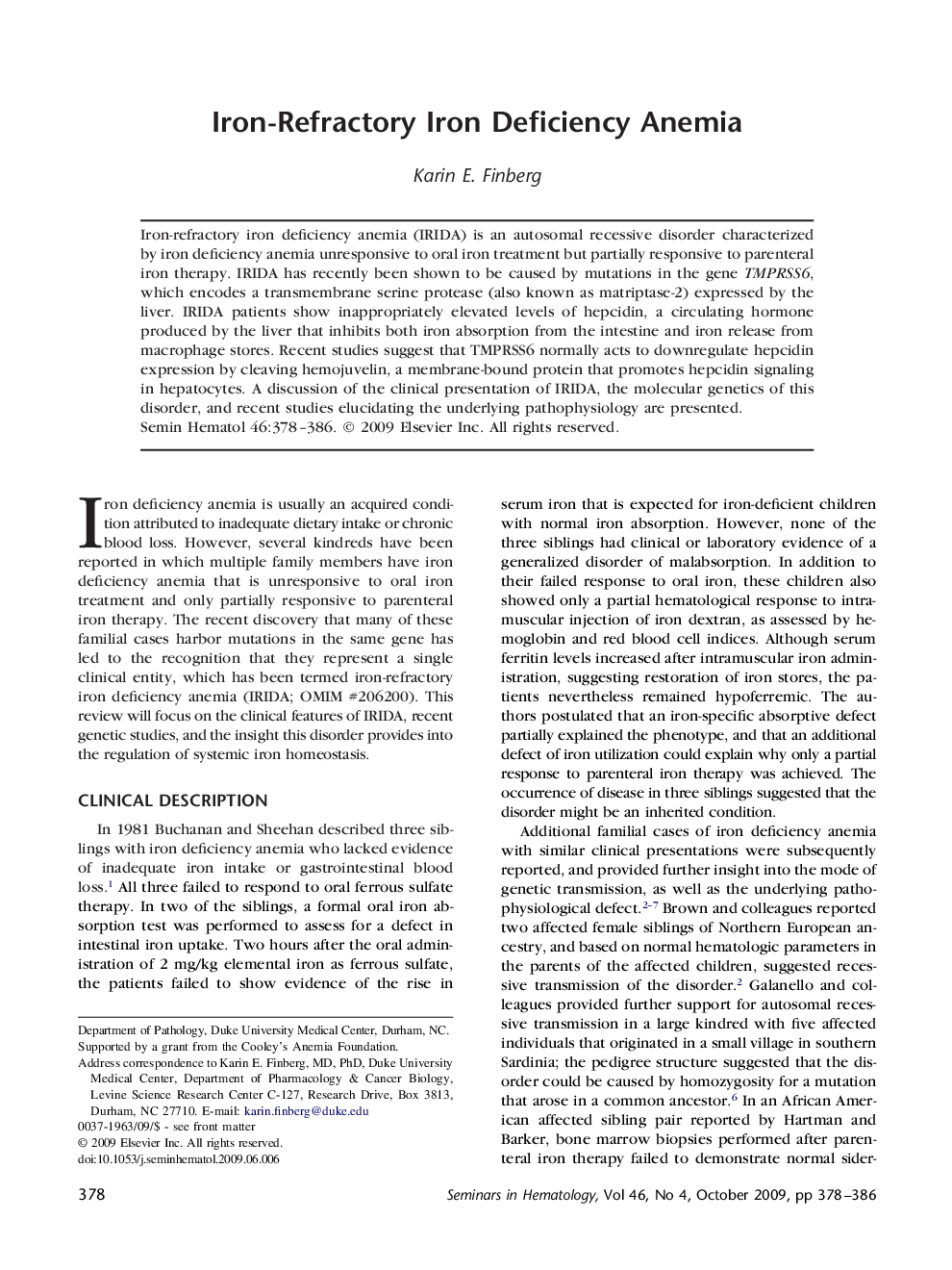| Article ID | Journal | Published Year | Pages | File Type |
|---|---|---|---|---|
| 3333842 | Seminars in Hematology | 2009 | 9 Pages |
Iron-refractory iron deficiency anemia (IRIDA) is an autosomal recessive disorder characterized by iron deficiency anemia unresponsive to oral iron treatment but partially responsive to parenteral iron therapy. IRIDA has recently been shown to be caused by mutations in the gene TMPRSS6, which encodes a transmembrane serine protease (also known as matriptase-2) expressed by the liver. IRIDA patients show inappropriately elevated levels of hepcidin, a circulating hormone produced by the liver that inhibits both iron absorption from the intestine and iron release from macrophage stores. Recent studies suggest that TMPRSS6 normally acts to downregulate hepcidin expression by cleaving hemojuvelin, a membrane-bound protein that promotes hepcidin signaling in hepatocytes. A discussion of the clinical presentation of IRIDA, the molecular genetics of this disorder, and recent studies elucidating the underlying pathophysiology are presented.
